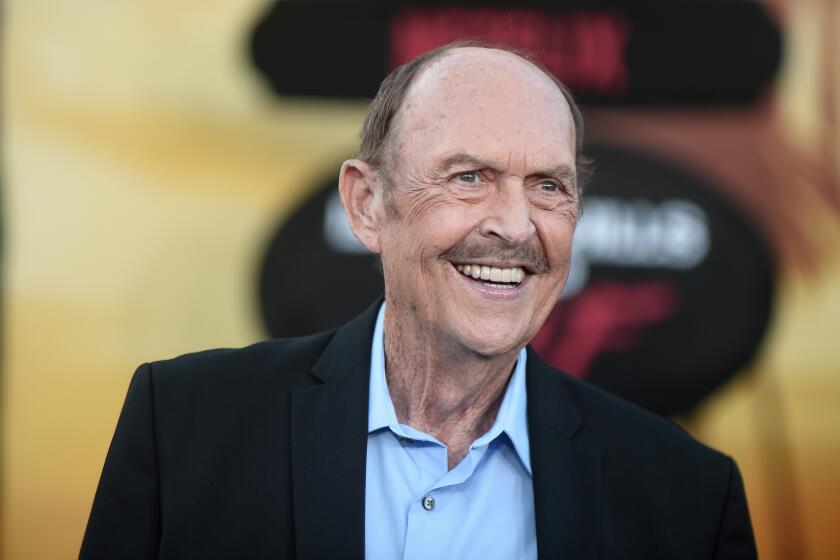FCC Steps Out of Order With Fairness Ruling
Is the FCC fairness doctrine constitutional? Who should decide? The Federal Communications Commission has answered no to the first question, and has nominated itself for the second. Two years ago it thought that it didn’t have that power.
The decision to dump the doctrine touches off a new round of debate about the rule, which for 38 years required radio and television stations to provide opposing viewpoints in covering controversial issues. The debate isn’t about whether covering controversy and doing it with balance are good ideas. It’s about whether the government should oversee the judgment calls when broadcasters make them.
I think that broadcasting should be treated as the print media are. A Federal Newspaper Commission administering a fairness doctrine would be unthinkable. The reason given for taking a different First Amendment turn when it’s KNBC or KFI is the “scarcity of the air waves.” But that’s not convincing in Los Angeles, where there are scores of electronic news outlets but only a few print.
It’s not true in Humboldt County, either. There may be only a couple of local radio outlets there. But the cause of this scarcity is a lack of advertising dollars to support more stations, not a shortage on the electromagnetic spectrum. Permit regulation of this sort of scarcity, and you justify government review of films that a small-town movie house can play or of the slogans permitted to be sold by a village T-shirt shop.
Also, the fairness doctrine doesn’t work that well. It assumes that the same viewers will somehow hear the differing viewpoints even if they’re broadcast days or weeks apart. And, when the FCC has to enforce it, the remedial broadcast may appear years later, long after a controversy has died down.
Worse, the FCC can err about whether the rule has been violated. In 1972 NBC aired a documentary about people who were fired just before their pensions would have become vested. The FCC said that it was too one-sided. NBC thought that it had been fair.
The U.S. Court of Appeals for the District of Columbia found that the FCC had misapplied the fairness doctrine, and reversed the order. But the challenge had cost NBC $100,000 in legal fees. Broadcasters don’t need headaches like this. The doctrine can chill editorial enthusiasm, not foster it.
But who should decide whether the fairness doctrine violates the guarantee of free speech? The oddity of last Tuesday’s decision is that an administrative agency has done so. It shouldn’t be the FCC; it should be the Supreme Court of the United States.
The FCC didn’t start out trying to make constitutional law. In 1985, thinking that Congress might have codified the doctrine in 1959, the FCC said that it would enforce the rule until a court or Congress said to stop. But in 1986 the District of Columbia Court of Appeals suggested that Congress never enacted the doctrine.
Yet “stop enforcing” is about the last instruction that Congress would give this FCC. Congress tried to codify the doctrine last spring, but President Reagan vetoed the measure in June.
There is irony here. The FCC is not supposed to be an adversary of Congress, but its agent. An act of Congress created the agency in 1934; an act of Congress could eliminate it tomorrow. But the FCC is an independent agency as well, part of the “fourth branch” of government created in this century to oversee industries like securities, transportation and communications.
Some of the friction is political. A Democratic Congress oversees an FCC that is run by people who were all appointed or reappointed by Reagan. The chairman, who sets the FCC’s agenda, is picked by the President. But “Republican vs. Democrat” doesn’t fully explain sides on the fairness doctrine. At stake is a difference in philosophy about how free the electronic press should be. Those in favor of the rule include the chairmen of the House committees that oversee the FCC, John D. Dingell (D-Mich.) and Edward J. Markey (D-Mass.), as well as Ralph Nader. But add Phyllis Schlafly and Patrick Buchanan. They also believe that broadcast journalists, especially on networks, should be regulated.
Opponents of such regulation include as diverse a group as Sen. William Proxmire (D-Wis.), Walter Cronkite and the Rev. Jerry Falwell. They believe that government shouldn’t have a role to play in deciding what’s fair.
The Supreme Court likes to defer to the FCC or Congress when it comes to broadcasting. It is hesitant to rewrite regulations that involve political, social and engineering issues. As the court sees it, deference to the FCC is good; deference to Congress, better.
Our nation’s first chief justice, John Marshall, declared that the Supreme Court ultimately decides what’s constitutional--not the FCC, not even Congress. If Congress reimposes the doctrine, the experiment in electronic press freedom begun last Tuesday will be halted. Yet the arguments that led the FCC to its decision remain. The FCC has the right message, but the right medium is the Supreme Court.
More to Read
The biggest entertainment stories
Get our big stories about Hollywood, film, television, music, arts, culture and more right in your inbox as soon as they publish.
You may occasionally receive promotional content from the Los Angeles Times.










